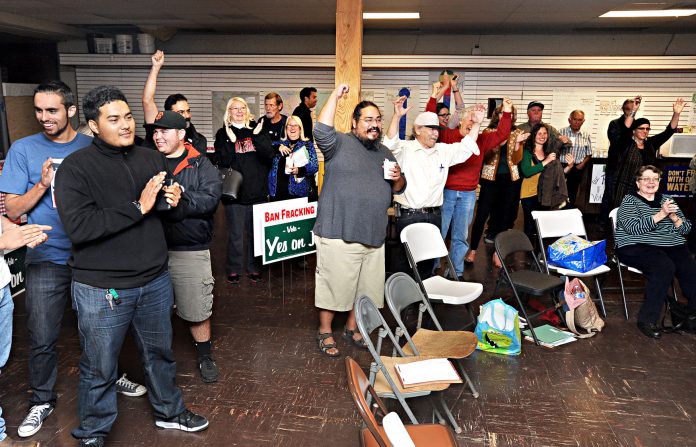
In certain respects, the tension-laced debate over Measure J was unhealthy and unnecessary, and at times personal. The fervor on both sides of the issue, however, showed a lot about local residents’ passions for this county.
Measure J was the initiative to ban hydraulic fracturing, or fracking, and other enhanced petroleum techniques. Additionally, it will ban all oil practices in areas near Hollister and San Juan Bautista. Voters overwhelmingly approved the measure on the Nov. 4 ballot, and it will go into effect Jan. 1.
The yes side focused on hydraulic fracturing and couched it as a fracking ban. Big oil companies funded the no side, which had a campaign that lost at the ground level while spending about $2 million compared with just over $100,000 for supporters.
There was plenty of vitriol on both sides, but it is important to point out the good that came out of this long, painful discussion. It brought focus to the messages on each side and engaged voters about important issues. Now, moving ahead, it would be nice to see local people harness that energy, use the experience to find bridges on other important matters, and do it in a less rancorous environment.
On the downside of this debate, as with many political campaigns, clearly there were shortfalls with voters’ understanding about the realities of the result on either side. At times, voters were fed simple messages on a complicated subject, and many of them didn’t educate themselves enough to truly understand what Measure J meant.
Another unfortunate result of the campaigning was the trend toward vandalism and theft of signs, on both sides. While it was good to see voters involved, the childish, blatant disrespect for our First Amendment right of free speech shows many have a long way to go before becoming productive, informed voters.
In the end, one side’s message and turnout efforts worked, and the others didn’t.
While the measure’s consequences are yet to unfold beyond a $1.2 billion claim filed by Citadel Exploration – which has the most to lose with its Project Indian oilfield site – it was encouraging to see how many people care about this community.









